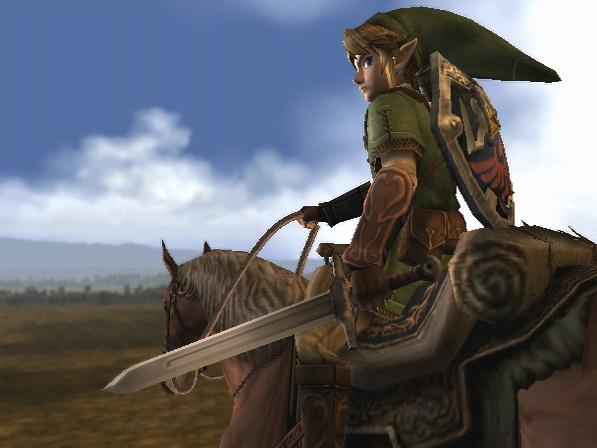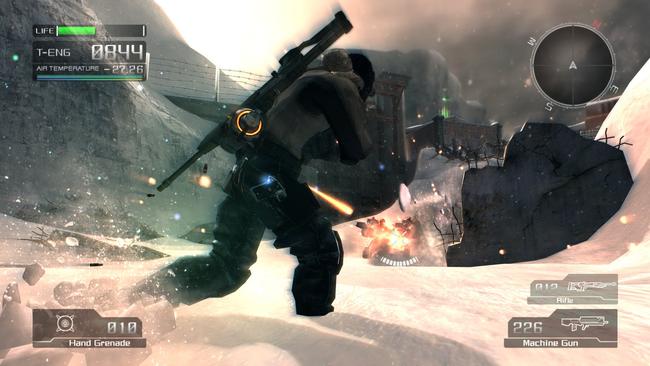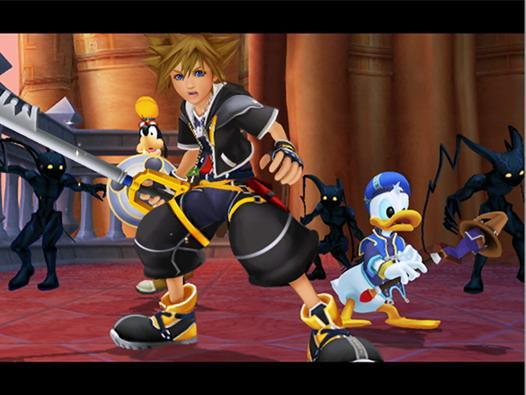Sold at a Loss: Does it Matter?
Around a century ago, or so the story goes, a salesman by the name of King Camp Gillette had two ideas -- one good, one brilliant and revolutionary. The good idea was to manufacture and sell a safety razor that used disposable blades so a dull blade could be easily replaced. The brilliant idea was to sell the razors at a loss, and make a cut-throat profit on the blades.
This idea has been copied by many since. Printer manufacturers sell printers for a low price, then sell replacement cartridges for almost as much as the printer; back before rechargeable batteries became the norm video cameras would have specific batteries you had to pay out more for -- not to mention the expensive tapes that you record on.

Naturally, this article is going to focus on what I -- and the rest of you, hopefully, if you're reading this site -- know best: videogames. For a while now consoles have been sold at a loss, with the companies making their profits on the software and accessories sold. With the microtransactions becoming a major part of the spending habits of any gamer, we could also potentially be seeing this tactic with games -- selling cheaper titles which we can then buy the important "parts" to online.
But how does this affect all us? Is it good or bad for us? And perhaps more importantly, how does this affect the big three? Are Sony and Microsoft perhaps going to have to copycat Nintendo and sell their next console at a profit from the get-go, or will the Wii's successor be selling at a loss? It's time to speculate.

Microsoft has more than made their money back off me with the Xbox 360. I own thirteen titles; factoring in press review code, I own seven. I've also got the wireless adapter, Vision Camera, a memory card for taking my gamertag to friends' houses, three controllers, each with a rechargeable battery, one play and charge kit, and one charging docking station.
I'm not going to work out how much I've spent on it, as it will likely make me feel sick, but the seven games and the accessories I've bought should've paid Microsoft back for the cash they lost when I first picked up my console and Perfect Dark Zero on launch day. I don't mind that much; it's not like I bought the stuff to pay MS back -- I wanted the accessories. In that sense, it's good. In some ways, it's not -- the Vision Camera was a very reasonable price for what it was, but I felt like I'd rather have the cash wrenched from my cold, dead fists than pay £60 for the 360's Wireless Bridge. Naturally, I bought it anyway, but it's a matter of principle. No small accessory like that should cost 100 dollars.
In many ways, despite that I do think the selling of consoles at a loss is very beneficial to gamers. If Microsoft and Sony had gone Nintendo's path this generation, we'd have considerably weaker consoles. Sure, there'd be no "599 US Dollars!" jokes, but we'd also be lacking incredible looking games like Metal Gear Solid 4 and Gears of War. Likewise, if they'd sold their consoles to break even - leave alone profit, 599 US Dollars would be the last of our worries.

Good for Sony and Microsoft for selling the consoles at a loss -- it's a competitive market, and certainly by losing a bit of money now they can make a hefty profit in the future. It allows us to get our hands on cutting edge technology at a fairly reasonable price. It's also good for them, as it gets their hardware into more homes which means higher software sales which in the end means more profit. It's good business.
At the same time, we can hardly fault Nintendo's stance, as Wii's being sold at a profit now means Wii players will be paying much less for their games than those with a 360 or PS3. There is a bit of controversy about the price of the Remote and Nunchuk, but I think people are forgetting just how cutting edge the technology inside that tiny remote is, so I don't mind paying a little extra for that, especially considering what we'll all be saving on games.
All in all, whichever route each company takes; it's a win-win situation for gamers. Gaming isn't getting any cheaper, and there's only two ways to offset the expense -- sell powerful consoles at a loss and recoup the cash on other things, or slow the release of cutting-edge consoles, instead focusing on less impressive internal technology, as is the case with the Wii. Right now, there's something for everybody -- the powerhouse, expensive PS3, the cheap and cheerful Wii, and the middle of the road that is the Xbox 360.

It all works, and works well -- the core gamer that is more likely to buy the PS3 and 360 is more likely to buy all those accessories that are vital to making a profit, while the Nintnedo's new market of mothers and women are less likely to want seven games in the first year and a boatload of accessories. The only issue I have with this is the one I bought up earlier, when accessories are ridiculously priced. The Wi-Fi Adapter for the 360 is far too expensive, and I'd like to remind everyone of the price of an official Sony Memory Card for the past two years running -- not nice, and certainly not necessary.
Microtransactions and downloading is a whole new area of this topic and a different case entirely. The recent announcement that the special edition of Lost Planet on the 360 will include a special code entitling the buyer to a special multiplayer map off the marketplace was met with cries of anger -- "splitting the multiplayer base right from the start," some said, and "unfair, especially if the one edition is limited" said others. I actually agree.
It's a matter of where to draw the line; in a recent interview with IGN, a member of the Tiger Woods team explained how in future titles, users would have a choice -- they could unlock new golf courses in-game, or purchase them online if they were feeling a little more lazy. There are some possibilities for sinister implications, but in theory, this should work just fine.

However, I hope we don't start to see a lot of content that is exclusive to those who pay, particularly in multiplayer games -- the Perfect Dark Zero Map Pack just split the multiplayer fanbase down the middle, and that is often the case unless, of course, the new items are free. I do feel it's kind of unfair for us to be asked to pay an extra 15 dollars for a continuation of a story we've already paid for in full.
My feelings on this closely link to the recent RPG Kingdom Hearts II, which has just had its "Final Mix" announced in Japan. I dislike Final Mix and actually haven't bought Kingdom Hearts II because I refuse to buy a game safe in the knowledge they never actually finished adding everything they want to, and intend to put that right now with another full version that will cost even more money. I'd much rather the game was delayed, and all these extras were added to the original, but, sadly, that simply isn't the way this industry works.

Unlike consoles being sold at a loss, I would say microtransactions and the advent of online distribution of games and add-ons for games has the potential to spiral out of control and become an extremely negative thing. On the other hand, if done correctly, it could be the best thing to ever happen to gaming. Let's just hope it doesn't become like Gillette's razors, with us having to "top up" our games periodically with pricy downloadable content.
No matter how they get to us and how much they cost, the most important thing is, of course, the games. Sadly, money's always going to have the power -- if there's no profit, frankly, there's no gaming. Because of that, I hope every method continues to work as well as they are now. With a bit of luck, it'll benefit us all as well.
Enjoyed this article? Digg it!